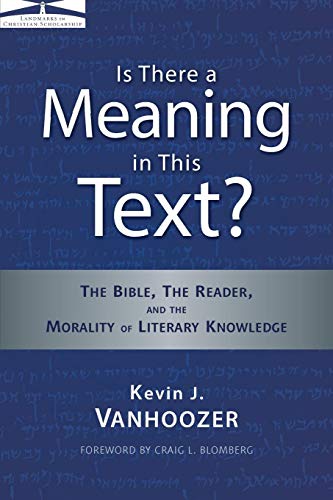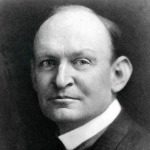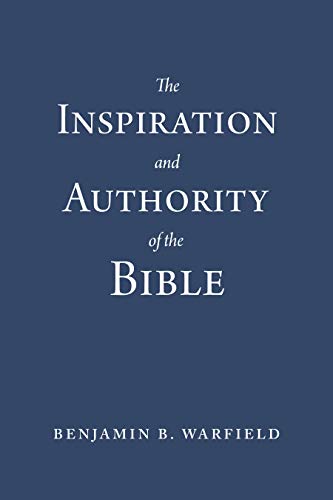Quotes about Bible-Inspiration
All who claim a supernatural inspiration must stand prepared to prove it by supernatural works.
So it is with reference to the writers of the Scriptures. They were carried along, borne along, under the control and direction of the Holy Spirit of God. They wrote as the Spirit directed them to write. They were borne along by Him so that what they wrote was exactly that which the Holy Spirit intended should be there. What they wrote was, in a very real sense, not their words; it was the very Word of God.
Among the many arguments to prove the penmen of the Scripture inspired by the Spirit of God, this is not the last and least- that the penmen of Holy Writ do record their own faults and the faults of their dearest and nearest relatives. For instance hereof, how coarsely doth David speak of himself: “So foolish was I, and ignorant; I was as a beast before Thee.” And do you think that the face of St. Paul did look the more foul by being drawn with his own pencil, when he says, “I was a murderer, a persecuter, the greatest of sinners,” etc?… Moses sets down the sin and punishment of his own sister, the idolatry and superstition of Aaron his brother, and his own fault in his preposterous striking the rock.
A Puritan Golden Treasury, compiled by I.D.E. Thomas, by permission of Banner of Truth, Carlisle, PA. 2000, p. 35.
Note what Christ taught about the inspiration of the Old Testament:
1. Its entirety; the whole of the Bible is inspired (Matt. 4:4; 5:17-18). In Matthew 4:4, Jesus responded to Satan’s temptation by affirming verbal plenary inspiration when He said, man is to live by every word (plenary) that proceeds out of the mouth of God (inspiration). In Matthew 5:17-18, Christ promised that the entire Old Testament, the Law and the Prophets, would be fulfilled, not abolished. In fact, He declared that not even the smallest Hebrew letter, the yodh, which looks like an apostrophe (‘), or stroke of a letter, a small distinguishing extension or protrusion of several Hebrews letters (cf. the extension on the letter R with it absence on the letter P), would pass away until all is fulfilled. Christ’s point is that it is all inspired and true and will be fulfilled.
2. Its historicity; He spoke of the Old Testament in terms of actual history. Adam and Eve were two human beings, created by God in the beginning, who lived and acted in certain ways (Matt. 19:3-5; Mark 10:6-8). He spoke of Jonah and his experience in the belly of the great fish as an historical event (Matt. 12:40). He also verified the events of the flood in Noah’s day along with the ark (Matt. 24:38-39; Luke 17:26-27). He verified God’s destruction of Sodom and the historicity of Lot and his wife (Matt. 10:15; Luke 17:28-29). These are only a few illustrations; many others exist.
3. Its reliability; because it is God’s word, the Scripture must be fulfilled (Matt. 26:54).
4. Its sufficiency; it is sufficient to witness to the truth of God and His salvation (Luke 16:31).
5. Its indestructibility; heaven and earth will not pass away until it is all fulfilled. Nothing can stop its fulfillment (Matt. 5:17-18).
6. Its unity; the whole of the Bible speaks and witnesses to the person and work of Christ (Luke 24:27, 44).
7. Its inerrancy; men are often in error, but the Bible is not; it is truth (Matt. 22:29; John 17:17).
8. Its infallibility; the Bible cannot be broken, it always stands the test (John 10:35).
The Bible: The Inerrant Word of God, www.bible.org, Copyright ©1996-2005, All rights reserved.
Without previous thinking, planning, imagining…the apostles will receive directly from God just what to utter. It will come into their minds just as it is needed, and thus they will utter it aloud. The apostles, indeed, make utterance, and yet they do not, for their act is due to the Holy Spirit, so that most properly He is the one who does this uttering. Everything that is mechanical, magical, unpsychological is shut out. The apostles will not be like the demoniacs – their organs of speech and their very wills being violated by a demon. Absolutely the contrary: mind, heart, will operate freely, consciously, in joyful, trustful dependence on the Spirit’s giving, who enables them to find just what to say and how to say it down to the last word, with no mistake or even a wrong word due to faulty memory or disturbed emotions occurring. This, of course, is Inspiration, Verbal Inspiration.
Nothing is more offensive to the Author of Scripture than to disregard, deny, or distort the truth He has revealed (Rev. 22:18–19). To mishandle the Word of God is to misrepresent the One who wrote it. To reject its claims is to call Him a liar. To ignore its message is to snub that which the Holy Spirit inspired.
As those godly men were carried along by the Holy Spirit, He superintended their words and used them to produce the Scriptures. As a sailing ship is carried along by the wind to reach its final destination, so the human authors of Scripture were moved by the Spirit of God to communicate exactly what He desired. In that process, the Spirit filled their minds, souls, and hearts with divine truth— mingling it sovereignly and supernaturally with their unique styles, vocabularies, and experiences, and guiding them to produce a perfect, inerrant result.
Strange Fire, Copyright © John MacArthur, 2013, p. 223.
Get this book!
In the end result, that which was written [in the Bible] was fully the words of the human authors in their language and style and from their personal perspectives, but it was under the direct superintendence of God by his Spirit producing on the page the very words of God.
God’s Word by John MacArthur and Richard Mayhue taken from Biblical Doctrine by John MacArthur and Richard Mayhue, copyright 2017, Crossway Books, a division of Good News Publishers, Wheaton Illinois 60187, www.crosswaybooks.org. Page 79.
The process of inspiration at no point in time violates the personality, language, or style of the human author. Indeed, it includes all these elements as well as the immediate historical context in which the text was written. God prepared the human authors to be used as his instruments for the composition of His own Word.
God’s Word by John MacArthur and Richard Mayhue taken from Biblical Doctrine by John MacArthur and Richard Mayhue, copyright 2017, Crossway Books, a division of Good News Publishers, Wheaton Illinois 60187, www.crosswaybooks.org. Page 83.
On the one hand, God’s superintendence of Scripture did not compromise the humanness of the authors. On the other hand, the process of inspiration included God’s work of safeguarding the human writers so that they did not err when they were writing his Word – word after word, sentence after sentence.
God’s Word by John MacArthur and Richard Mayhue taken from Biblical Doctrine by John MacArthur and Richard Mayhue, copyright 2017, Crossway Books, a division of Good News Publishers, Wheaton Illinois 60187, www.crosswaybooks.org. Page 108.
[Inspiration is] God superintending human authors so that using their own individual personalities, experiences, thought processes and vocabulary they composed and recorded without error His revelation in the original copies of Scripture.
Theologians speak of inspiration as the mysterious process by which God worked through the authors of Scripture to produce inerrant and divinely authoritative writings… The Spirit moved on the Biblical writers to produce the Word of God in the language of men.
If the Bible doesn’t mean exactly what it says, if we say it doesn’t mean what it says, then to what authority do we turn to find out what it does mean?
Divine Compassion for Those Deserving Condemnation. The sermon originally appeared (https://www.gty.org/library/sermons-library/42-191/divine-compassion-for-those-deserving-condemnation-part-5) at www.gty.org. © 1969-2008. Grace to You. All rights reserved. Used by Permission.
Scripture testifies to its own inspiration; it is the Word of God, originating outside of man. This is particularly important to understand in a culture dominated by the subjectivity of postmodernism. Truth cannot be subjective; there is no such thing as your truth or my truth. Truth is forever fixed. Authentic Christianity has always held that Scripture is absolute, objective truth. The Bible is God’s truth regardless of whether a person believes, understands, or likes it. It is a permanent and universal truth, and therefore, is the same for everyone.
Christians need no other reason to be avid readers of the Word of God. Realizing that Scripture is “God-breathed” is motivation enough. Immediately, we see a connection between the living Word and the written Word. Just as Jesus Christ the living Word is an ever present and dynamic reality, the written Word is equally alive and active through the mind of the Holy Spirit. Every time we open the Scriptures, we should expect a personal encounter with the God-breathed Spirit of the living Word. This is reading at its very best. When the mind and spirit of a biblical author interact in vibrant dialogue with the mind and spirit of a reader, the highest purpose of the inspired Word is fulfilled. We should soar every time we read the Word of God.
How to Read a Christian Book, 2001, p. 18- 19. Used by permission of Baker, a division of Baker Book House Company.
God didn’t dictate the whole Bible the way an executive mechanically dictates letters to his secretary. The human authors’ personalities are like musical instruments. If I play the same tune on a number of wind instruments, each will sound different even if I play the exact melody in the same key and even though it’s all coming from the same breath – mine. If I play “Amazing Grace” on a tuba, baritone, trombone, French horn, trumpet, oboe, clarinet, and flute, it is all “Andy- breathed” or “Andy-produced,” but it goes through the “personality” of the instrument. In one sense that’s how God produced the Bible through human authors.
Scripture – How the Bible is Like No Other by Andy Naselli, taken from Don’t Call it a Comeback, edited by Kevin DeYoung, copyright 2011, Crossway Books, a division of Good News Publishers, Wheaton Illinois 60187, www.crosswaybooks.org, p. 60-61.
We discover a striking proof of the Divine inspiration of the Scriptures. In the Bible human nature is painted in its true colors: the characters of its heroes are faithfully depicted, the sins of its most prominent personages are frankly recorded. It is human to err, but it is also human to conceal the blemishes of those we admire. Had the Bible been a human production, had it been written by uninspired historians, the defects of its leading characters would have been ignored, or if recorded at all, an attempt at extenuation would have been made.
In the Bible itself, the two authors, human and divine, do not simply stand side by side. Rather, each points to the other and affirms the presence and operation of the other… God Himself points out the importance of the human authors… God Himself requires us to interpret the words of Scripture against the background of what we know about the human author. We cannot simply ignore the human author, when we concentrate on what God is saying… [The human author] is not just any human author. He is the one through whom God speaks. His own intentions are that we should reckon with this. It is not a denial of human authorship, but an affirmation of it, when we pay attention to God speaking… Hence there is a unity of meaning and a unity of application.
The Right Doctrine from the Wrong Texts, Edited by: G. K. Beale, Baker, 1994, p. 96-97.
One proof of the inspiration of the Bible is that it has withstood so much poor preaching.
Give me the plenary, verbal theory of biblical inspiration with all its difficulties, rather than the doubt. I accept the difficulties and humbly wait for their solution. But while I wait, I am standing on the rock.
God has communicated to man, the infinite to the finite. The One who made man capable of language in the first place has communicated to man in language about both spiritual reality and physical reality, about the nature of God and the nature of man.
2 Peter 1:21 says, “Men moved by the Holy Spirit spoke from God.” The Greek word for “moved” is “phero.” It’s a verb that is translated “bring, carry or bear.” It’s the same word that used twice in Acts 27 –Paul’s famous voyage to Rome – of the ship that was at the mercy of the breeze being caried by the wind. It’s origin of the English name, “Christopher.” Christos (Christ) – Phero (Bearing) – Bearing Christ. So, this tells us that the men who wrote Scripture did not have heightened powers or mystical visions or even an ear for God to dictate His word. Rather, they wrote what they knew to be true using their own words, style, experiences and personalities, but as they wrote, the Holy Spirit (pheuma-the same Greek word used in the Bible for wind) was bearing them along. Therefore, when they wrote they wrote the very Word of God.
If I did not believe in the infallibility of this book, I would rather be without it. If I am to judge the book, it is no judge of me. If I am to sift it, and lay this aside and only accept that, according to my own judgment, then I have no guidance whatever, unless I have conceit enough to trust my own heart. The new theory denies infallibility to the words of God, but practically imputes it to the judgments of men. At least, this is all the infallibility which they can get at. I protest that I will rather risk my soul with a guide inspired from heaven, than with the differing leaders who arise from the earth at the call of “modern thought.”
Inspiration… the related process whereby God preserved the biblical authors from error when communicating, whether by His voice or in writing, that which He had shown them. The Holy Spirit superintended the writing of Scripture, that is to say, He acted to insure that what the human authors intended by their words is equivalent to what God intended… The Spirit thus brought the free and spontaneous thoughts of the human author into coincidence with the thoughts of God.
Special Revelation I, November 8, 2006, www.enjoyinggodministries.com. Used by Permission.
The particularity of each New Testament author was in no way smothered by the unique process of inspiration. On the contrary, the Holy Spirit first prepared, and then used, their individuality of upbringing, experience, temperament and personality, in order to convey through each some distinctive and appropriate truth.
The dual authorship of Scripture is an important truth to be carefully guarded. On the one hand, God spoke, revealing the truth and preserving the human authors from error, yet without violating their personality. On the other hand, men spoke, using their own faculties freely, yet without distorting the divine message. Their words were truly their own words. But they were (and still are) also God’s words, so that what Scripture says, God says.
The idea is not so much that God breathed into the Scriptures, but that the Scriptures are the product of His breathing out.
There are words written by kings, by emperors, by princes, by poets, by sages, by philosophers, by fishermen, by statesmen, by men learned in the wisdom of Egypt, educated in the schools of Babylon, and trained at the feet of rabbis in Jerusalem. It was written by men in exile, in the desert, in shepherd’s tents, in green pastures, and beside still waters. Among its authors we find a tax-gatherer, a herdsman, a gatherer of sycamore fruit. We find poor men, rich men, statesmen, preachers, captains, legislators, judges, and exiles. The Bible is a library full of history, genealogy, ethnology, law, ethics, prophecy, poetry, eloquence, medicine, sanitary science, political economy, and the perfect rules for personal and social life. And behind every word is the divine author, God Himself.
The Greek term has…nothing to say of inspiring or of inspiration: it speaks only of “spiring” or “spiration”. What is says of Scripture is, not that it is “breathed into by God” or is the product of the Divine “inbreathing” into its human authors, but that it is breathed out by God, “God-breathed”, the product of the creative breath of God… When Paul declares, then, that “every Scripture”, or “all Scripture” is the product of the Divine breath, “is God-breathed”, he asserts with as much energy as he could employ that Scripture is the product of a specifically Divine operation.
The Bible must have been written by God or good men or bad men or good angels or bad angels. But bad men and bad angels would not write it because it condemns bad men and bad angels. And good men and good angels would not deceive by lying about its authority and claiming that God wrote it. And so the Bible must have been written as it claims to have been written by God who by His Holy Spirit inspired men to record His words using the human instrument to communicate His truth.
The Bible was written by ordinary men. They had their own thoughts, ideas, and opinions which they recorded in both the Old and New Testaments. God did not reach down and take hold of their pens, causing them to write things which they would have never thought to write. And except for the instances where His audible words were recorded, God did not dictate the words of Scripture. Rather, He worked in these men, through their unique personalities, experiences, emotions, and intellects, causing them to record His words.
The Bible is God’s Special Revelation, Christian Communicators Worldwide, www.CCWtoday.org. Used by Permission.
Recommended Books

























